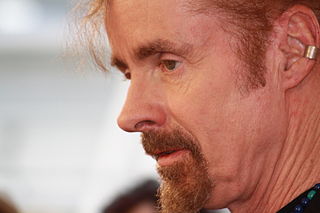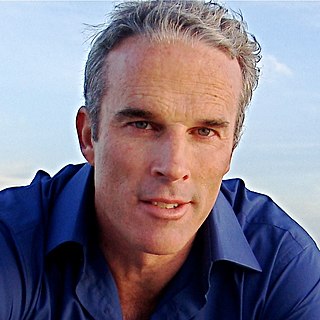A Quote by Jodi Picoult
Kid says to me, "You play baseball? What position? Left out?" and gets a big laugh from the rest of the class. Kid is only one person out of 6.792 billion humans on this planet. This planet is only one-eighth of the solar system, whose sun is one of two billion stars in the Milky Way galaxy. Put it that way, the comment loses it's importance.
Related Quotes
While the Copernican principle comes with no guarantees that it will forever guide us to cosmic truths, it's worked quite well so far: not only is Earth not in the center of the solar system, but the solar system is not in the center of the Milky Way galaxy, the Milky Way galaxy is not in the center of the universe, and it may come to pass that our universe is just one of many that comprise a multiverse. And in case you're one of those people who thinks that the edge may be a special place, we are not at the edge of anything either.
We’re turning everything on the planet into food for humans so we’re cutting down the rainforests, displacing all of the animals, and we’re doing all this to feed humans... ... Imagine if there were only 2 billion people polluting? We’re already overpopulated. I feel we’ve become a parasite on this planet. If this population keeps growing, we’ll just keep devouring the planet, and I don’t think it’s going to stand for that very long.
Our planet has been around only for four and a half billion years. Let's imagine a planet that has life on it such as life is on Earth and it's seven billion years old. Let's say that planet evolved intelligence. Well, that intelligence would be way more advanced than what we call intelligence here on Earth. How long has intelligence been around on Earth as we've come to define it?
There is nothing wrong with the planet. The planet is fine ... been here 4 1/2 billion years. We've been here, what, a 100,000 years, maybe 200,000. And we've only been engaged in heavy industry a little over 200 years. 200 years versus 4 1/2 billion. And we have the conceit to think that somehow we're a threat? The planet isn't going away. We are.
When I grew up as a kid, we didn't know there were any other planets outside of our own solar system. It was widely speculated that planet formation was an incredibly rare event and that it's possible that other planets just don't exist in our galaxy, and it's just this special situation where we happen to have planets around our sun.
Let me put it in a rather larger picture framework. Let's go to the longest time frame, the time frame of the life of our sun. As a star, our sun is about halfway through its life cycle. In the long run, we only have a couple of billion more years likely that we can inhabit this planet. By that time, we're going to have to be out of here before our sun dies. Now, I don't think we need to wait that long, and we certainly shouldn't wait that long. At the moment, we are not on a sustainable path.

































